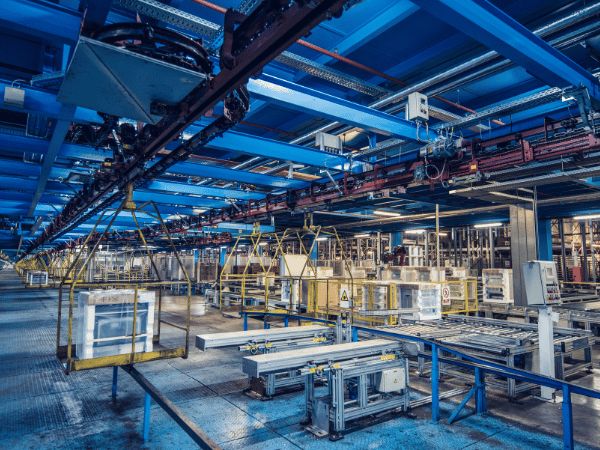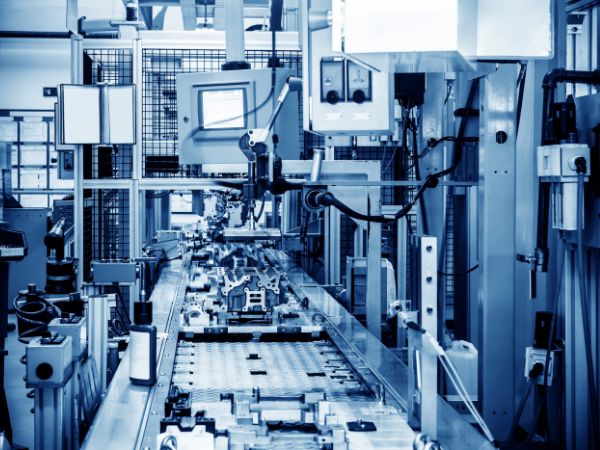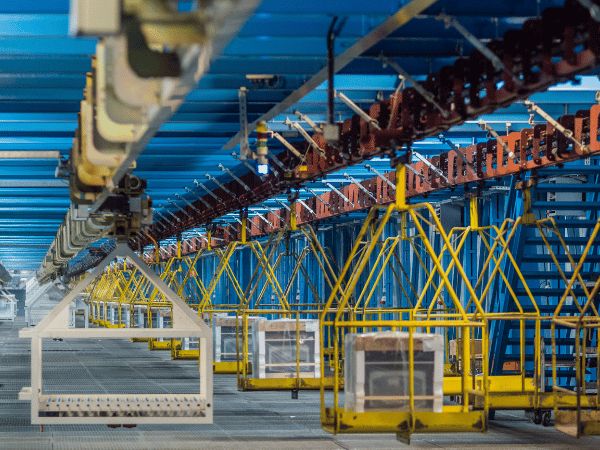Lean manufacturing
The 7 wastes and their implications
Waste is a huge bottleneck in todays mass productions, and is often an overseen potential way of becoming even more efficient and cost-effective. Taiichi Ohno, production manager and industrial engineer at Toyota Motor Corporation, recognized this adversary and gathered its forms in what are now known as the 7 wastes. These wastes, if left unattended, not only hamper producitivity but also minimizes the development in the production.
Overproduction – a waste of time
Overproduction, the biggest bottleneck of mass production, sets off a chain reaction that reverberates through the entire manufacturing process. This waste stems from producing more than what is currently needed, creating a ripple effect that disrupts workflow, accumulates excess inventory, and magnifies other wasteful practices. The key here is synchronization – producing precisely what is required, nothing more, nothing less.
From idle time to innovation
Waiting, often portrayed as idle time, and motion the strain including movements that yield no value, emerge as two formadible challenges. Operators standing by, machines idling and essential parts delayed result in precious time slipping away.
Similarly, unnecessary operator movements not only drain efficiency but also impact the well-being of the workforce. Recognizing these challenges and addressing them head-on can catalyze not only efficiency but also innovation in streamlining processes.


Embracing a safer and leaner future
Efficiency isn’t solely about numbers and statistics; it’s about fostering a culture of safety and innovation.
Waste elimination not only boosts productivity but also creates a safer and innovative environment for operators.
When the unnecessary waste is stripped away, the core of the team emerges. By targeting waste, manufacturing can pave the way towards a future where both workers and production systems thrive.
So why should you focus on the 7 wastes in your production?
The 7 wastes form an insightful roadmap to navigate the intricate landscape of a mass production. Every wasted movement, delay and overproduction ripple through the system, impacting both productivity and worker morale. By embracing the philosophy of waste elimination, you can rewrite the narrative of efficiency, innovation, and worker well-being.
By reducing your wastes in mass production, you are ready to embark the journey of making your production even more cost-effective and sustainable. Meanwhile you’ll be able to make time to the activities that creates value for your customers, but even more important, to your production.

Others also read
Vi deltager i INNOVATIONSKRAFT
Vores deltagelse i projektet “Automatisering af AI drevet Energioptimering” under ordningen INNOVATIONSKRAFT sigter mod at revolutionere energiforvaltningen i fødevareindustrien. Med støtte fra EU, udvikler vi AI-løsninger for at skære energiomkostninger og CO2-udslip, fremme bæredygtighed og økonomisk effektivitet.
Great success on Automatica
Last week, a large part of the Trendlog team was in Munich at the Automatica 2022 trade fair, where we were part of Odense Robotics’ Danish pavilion. And what a week it was!
Trendlog.io presents new CEO
Per 1st of October, Trendlog.io restructured internally, and has assigned Sebastian Märcher Sandig as new CEO.



